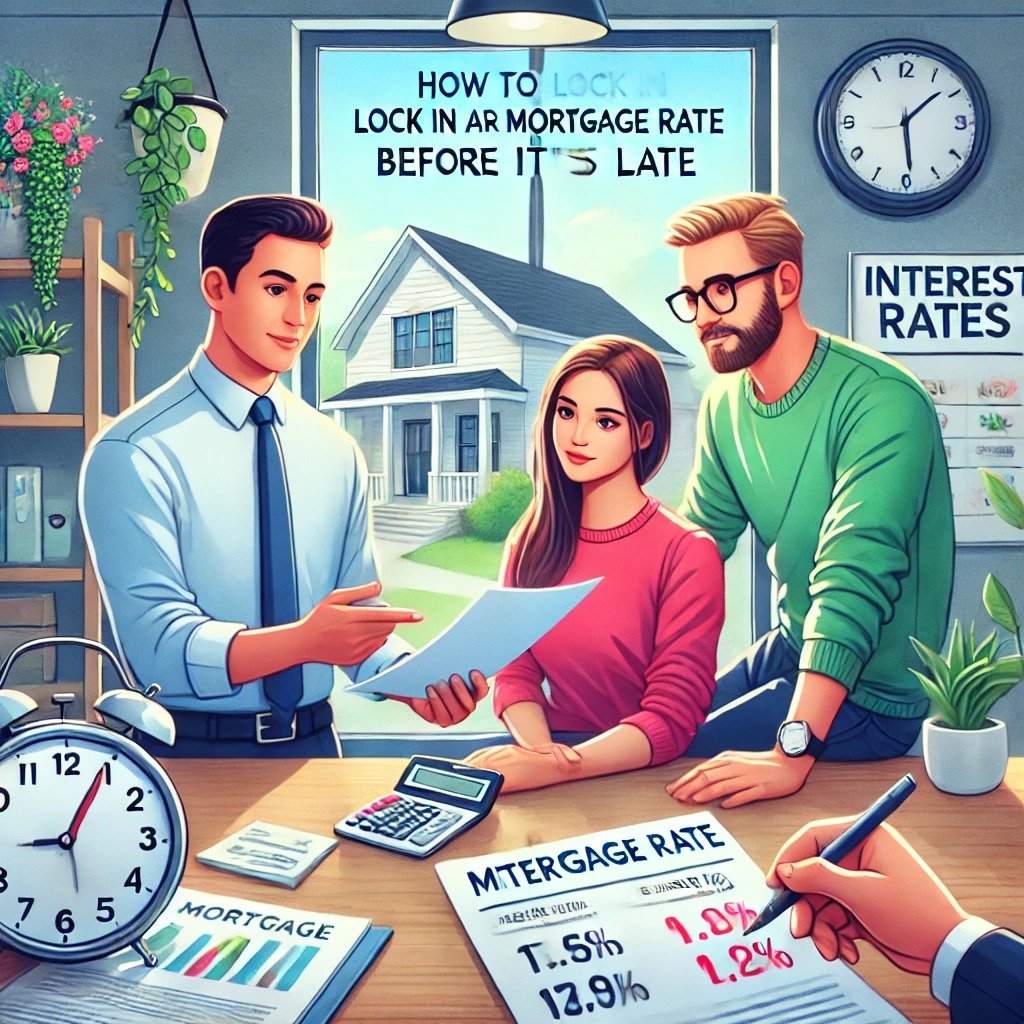When you’re in the process of buying a home, understanding how to lock in the best mortgage rate is crucial. A mortgage rate lock is a guarantee from your lender that the interstate you see today won’t change during an agreed period, which is typically between 30 and 60 days. This means that even if prevailing market rates rise, you can still enjoy the lower rate you’ve locked in. It’s essential to consider this option early in your application and approval process because it can help save thousands of dollars over the life of your loan.
While shopping around, you may find yourself facing the reality that interest rates can be quite volatile. If you encounter a good rate, you’ll want to lock in that rate as soon as possible, ensuring it stays the same until closing. Remember, you can switch lenders if you choose to, and this temporary lock is not a binding contract with your initial choice. It’s wise to understand how this works and what options are available, as some lenders may offer rate locks for free, while others might charge a fee or allow you to extend the period if needed. Don’t let a favorable rate slip away; make sure to act promptly and protect yourself from fluctuations that could affect your financial future.
What is a mortgage rate lock?
A mortgage rate lock is a tool that allows you to secure the best mortgage rate from a lender. This means your interest rate won’t change during the lock period. It protects you from rising rates while you finalize your mortgage.

Why do mortgage rates fluctuate?
Mortgage rates fluctuate due to several factors. Economic conditions, inflation, and market demand can all affect rates. When demand for loans increases, rates may rise. Conversely, if demand decreases, rates might fall. Understanding these fluctuations helps you decide when to lock in the best mortgage rate.
How a mortgage rate lock work?
When you lock in a rate, you agree to a fixed interest rate for a specific period, usually **30** to **60 days**. During this time, your lender guarantees that your rate will not change. This lock gives you peace of mind as you navigate the mortgage process. You can avoid stress over potential rate increases.
How long can a rate be locked?
You can typically lock in your best mortgage rate for 30 to 120 days. Some lenders offer longer locks, but they may come with additional fees. Understanding the length of the lock is important. It ensures that you have enough time to complete the loan process without losing your rate.
The Importance of Locking in Your Mortgage Rate
Why lock in your mortgage interest rate?
Locking in your interest rate is crucial, especially in a volatile market. If you find a favorable rate, securing it can save you money over time. The **best mortgage rate** can significantly lower your monthly payments and total loan cost. This decision can impact your finances for years to come.
Protect you from an unexpected rise in interest rates:
Rates can rise unexpectedly due to economic changes or market trends. By locking in your rate, you shield yourself from these fluctuations. This protection can be particularly valuable when the market is uncertain. It allows you to focus on your home purchase without worrying about rising costs.
How to Lock in Your Mortgage Rate?
To lock in your best mortgage rate, communicate with your lender. They will guide you through the process. Ensure you understand the terms of the lock. Confirm how long the lock lasts and if there are any fees involved. This clarity will help you make informed decisions.
When should I lock in my mortgage rate?
The best time to lock in your rate is when you see a favorable offer. If the market shows signs of rising rates, it may be wise to lock in immediately. Monitor economic news and trends to make informed choices. Staying proactive can help you secure the best mortgage rate.
How much does a rate lock cost?
The cost of a mortgage rate lock varies by lender. Some lenders offer free locks, while others charge a fee. This fee may be a flat rate or a percentage of the loan amount. Understanding these costs upfront can help you budget effectively and ensure you secure the best mortgage rate without unexpected expenses.
Mortgage rate lock extensions
If you need more time to finalize your mortgage, you may be able to extend your lock. Many lenders offer this option, but it often comes with additional fees. Before extending, weigh the costs against the benefits. Ensure that keeping the best mortgage rate is worth any extra expense.
Bottom Line
Locking in the best mortgage rate is crucial for your financial future. Understanding mortgage rate locks helps you navigate this process. By knowing when to lock, how long to lock, and the costs involved, you can protect yourself from rising interest rates. Take control of your mortgage journey by staying informed and proactive.
FAQs
What is a mortgage rate lock?
A mortgage rate lock is a guarantee that your interest rate will not change for a set period.
How long can I lock in my mortgage rate?
You can typically lock in your rate for 30 to 120 days, depending on the lender.
Why should I lock in my mortgage rate?
Locking in your rate protects you from potential increases in interest rates.
What does it cost to lock in a mortgage rate?
Costs vary by lender. Some charge fees, while others offer free locks.
Can I extend my mortgage rate lock?
Yes, many lenders allow you to extend your lock, often for a fee.
